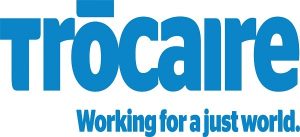
Underrepresentation of Women in Decision Making Roles at the Local Level
Rwanda has made tremendous progress to promote gender equality and women empowerment. Since the 1994 Genocide, Rwandan leadership has shown that they are committed to gender mainstreaming and gender equality by way of implemented policies and national legal framework. The Constitution of the Republic of Rwanda of 2003 as amended in 2015 enshrines the principles of gender equality and women’s rights. Article 10 Subsection 4 states, “Building a State governed by the rule of law, a pluralistic democratic Government, equality of all Rwandans and between men and women which is affirmed by women occupying at least thirty percent (30%) of positions in decision-making organs”. Article 16 adds, “All Rwandans are born and remain equal in rights and freedoms”. Despite this, there is still a lack of female representation in local and financial institutions.
Our Approach
Haguruka in partnership with Trocaire, decided to conduct a research study to shed light on this issue. There were 17 focus group discussions conducted, with attendance varying from 7-10 people aged 30-65 years old. We divided our findings into three categories: Factors related to institutions, Factors related to community, Factors related to individual.
Our Partner

Project Year
October 2019
Factors related to institutions:
Factors related to community:
Factors related to individual:
Impact
All of these factors have provided Haguruka and Trocaire with the necessary insight to tackle these issues head on. We have utilized this information to appropriately tailor our projects so that they are effective in their missions. This information is also available to other organizations so that they may also adjust their approaches to certain issues.

